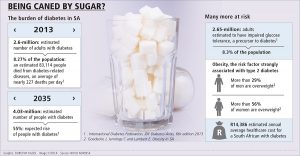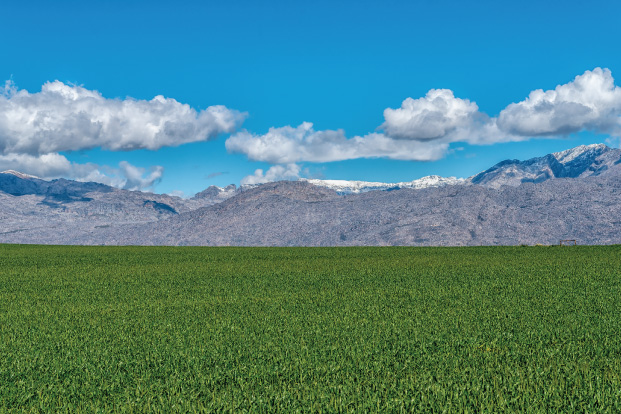Companies braced for sour side effects
Navel export taking shape
June 6, 2016
Drop in fruit exports to Russia
June 9, 2016Insipid days may be ahead for the sugar industry, as the proposed date for a tax on sugar-sweetened beverages looms.
With producers, such as Illovo and Tongaat Hulett, already showing strain amid a severe drought and weak local economic conditions, the possibility of a drop in sugar consumption could be too much for the sector to bear.
Finance Minister Pravin Gordhan announced in his budget speech that the tax could come into effect from April 1 2017. The 20% tax will apply to all nonalcoholic sugar-sweetened beverages, such as still and carbonated soft drinks, fruit juices, energy drinks, iced tea and cordials.
Absa economists said the tax could lead to a decline in sugar usage, which would drop the price of sugar, and thus affect the industry negatively.
Other JSE-listed companies that stand to be affected include Tiger Brands, Pioneer Foods, Bowler Metcalf and SABMiller.
Tiger owns brands such as Oros and Energade. Pioneer Foods has exposure through Liqui-Fruit, Ceres and Fruitree; while Bowler Metcalf has a division called SoftBev, which includes brands such as Pepsi, Jive, Capri Sun and Coo-ee. As part of Coca-Cola Beverages Africa (CCBA), SABMiller is the largest bottler of Coca-Cola products in Africa.
Companies have a tough choice ahead. They could choose to absorb the costs associated with the tax, or pass them on to consumers.
They could also choose to reduce the amount of sugar in their drinks, but consumer tastes indicate that the sweeter beverages are more popular.
A new paper published in The Lancet Diabetes & Endocrinology highlights that the global diet is getting sweeter, particularly when it comes to beverages. Consumption of sugar-sweetened beverages is rising fastest in low-and middle-income countries in Latin America, the Caribbean, Africa, the Middle East, Asia and Oceania.
KPMG chief economist and director Lullu Krugel said there were wide-spread concerns about public health, growing levels of obesity and diabetes, high sugar-consumption and the associated costs in SA.
“However, before a solution can be introduced, a solid behavioural and economic analysis is necessary to ensure that consumers react as intended and the benefits of the regulatory change outweigh the costs.”
Krugel said a sugar tax came with some unintended consequences.
Mexico, which introduced a sugar tax last year, has reported that 1,700 jobs have been lost.
Researchers there said the tax had a disproportionate effect on lower-income households and a smaller effect on obese individuals, thus missing the target market.
Denmark, for example, introduced a tax on saturated fat in food products. The purpose of the tax was to decrease the risk of lifestyle-related diseases. Denmark eventually repealed the tax for a variety of reasons including the administrative burden and the emergence of cross-border shopping.
Krugel said although it had not been stated, the South African government could be introducing the tax to increase its coffers.
“But the revenue they could get from such a tax could be quite small. Currently, the government gets about R10bn from the tax on liquor and R12bn from the tax on cigarettes. The sugar tax will likely bring in about R2bn,” she said.
“There are indications that the sin tax for liquor and cigarettes may be working, but that’s because they have come with a number of added interventions. Education initiatives have a better effect,” Krugel said.
Beverage Association of SA executive director Mapule Ncanywa said the selective application of a sugar tax was not the answer.
“We recognise there is a problem and are fully committed to being part of the solution, but to implement a tax on beverages without first fully studying the likely health and economic impacts locally, and taking international leanings into account, is something we oppose,” Ncanywa said.
South African Sugar Association executive director Trix Trikam said the industry would engage closely with the government to understand its thinking and intentions.
Source: BDlive




